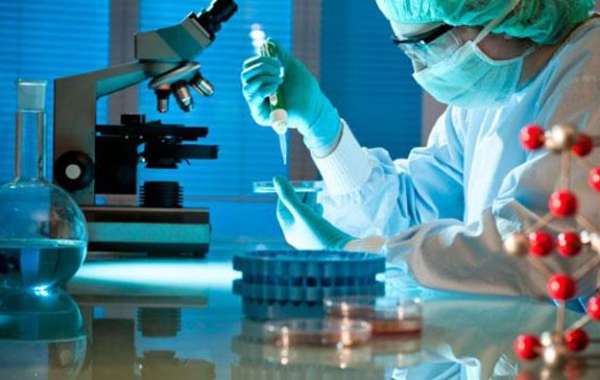Small molecule analysis is a critical component of scientific research, playing a pivotal role in pharmaceuticals, environmental monitoring, and various other industries. Achieving excellence in this field requires an in-depth understanding of the methodologies, overcoming common challenges, and harnessing the power of cutting-edge technologies. In this comprehensive guide, we will delve into the secrets of "Unlocking Small Molecule Analysis Success."
The Significance of Small Molecule Analysis
Small molecule analysis involves the identification and quantification of low molecular weight compounds, which are abundant in various samples. It is the cornerstone of pharmaceutical research, where it ensures the safety and efficacy of drugs. In environmental science, it helps monitor pollutants and toxins. In healthcare, it enables accurate diagnostics. By excelling in small molecule analysis, we contribute to safer drugs, healthier environments, and better patient care.
Key Components of Successful Small Molecule Analysis
Excellence in small molecule analysis demands a deep understanding of its core components:
Sample Preparation: Proper sample preparation is the foundation for reliable results. It involves extracting, purifying, and concentrating small molecules.
Chromatography: Chromatographic techniques like HPLC and GC are fundamental in separating and identifying compounds.
Mass Spectrometry: Mass spectrometers are essential for quantification and structure elucidation.
Method Validation: Rigorous validation ensures the accuracy, precision, and reliability of the analysis.
To unlock success, one must master these components and tailor them to the specific needs of their projects.
Challenges and Solutions
Small molecule analysis is not without its challenges. Common issues include interference, sensitivity, and specificity. To overcome these obstacles, experts employ various strategies:
Cutting-Edge Technologies: Leveraging the latest analytical instruments to enhance sensitivity and specificity.
Robust Validation Protocols: Implementing comprehensive validation procedures to guarantee the accuracy of the method.
Advanced Sample Cleanup: Employing advanced sample cleanup methods to mitigate interference.
Continuous Learning: Staying updated with the latest developments in the field through ongoing education and research.
These strategies empower researchers to tackle challenges head-on and create methods that are both robust and reliable.
Success Stories
Real-world success stories exemplify the impact of small molecule analysis. In the pharmaceutical industry, we've witnessed the development of precise drug assays, leading to safer medications. Healthcare benefits from rapid and accurate diagnostic tests, which enhance patient care. Environmental scientists employ sophisticated methods to monitor pollutants, safeguarding ecosystems. These stories highlight the critical role small molecule analysis plays in transforming industries and improving lives.
Practical Tips for Success
To excel in small molecule analysis, consider these practical tips:
Stay Informed: Continuously educate yourself about the latest technologies and methodologies.
Collaborate: Collaborating with experts from various disciplines can provide fresh perspectives.
Thorough Validation: Never compromise on method validation; it ensures the reliability of your results.
Innovation: Be open to experimenting with new approaches and technologies.
Conclusion
Small molecule analysis is the unsung hero of scientific progress, contributing to groundbreaking discoveries and advancements in numerous industries. By mastering its key components, overcoming challenges, and learning from real-world success stories, you can unlock small molecule analysis success. As you embark on your journey, remember that it's not just about analyzing small molecules; it's about improving pharmaceuticals, healthcare, and the environment.






